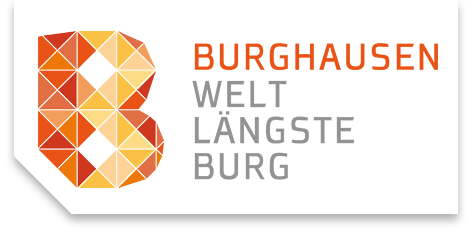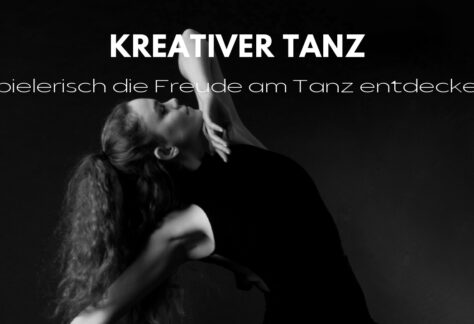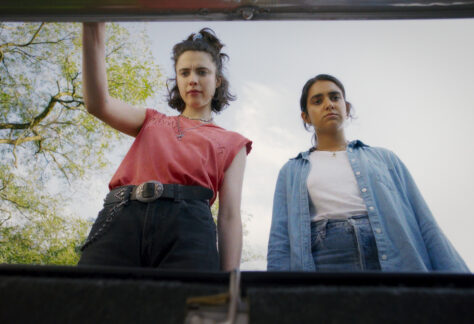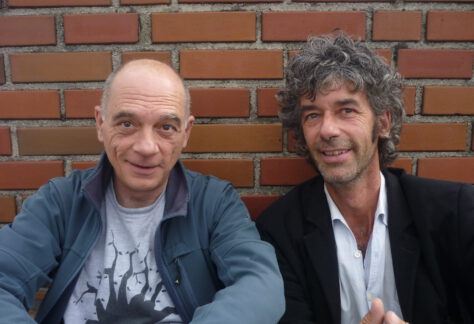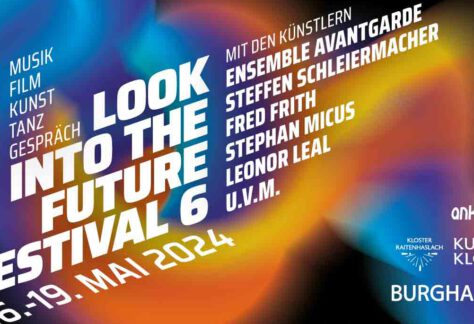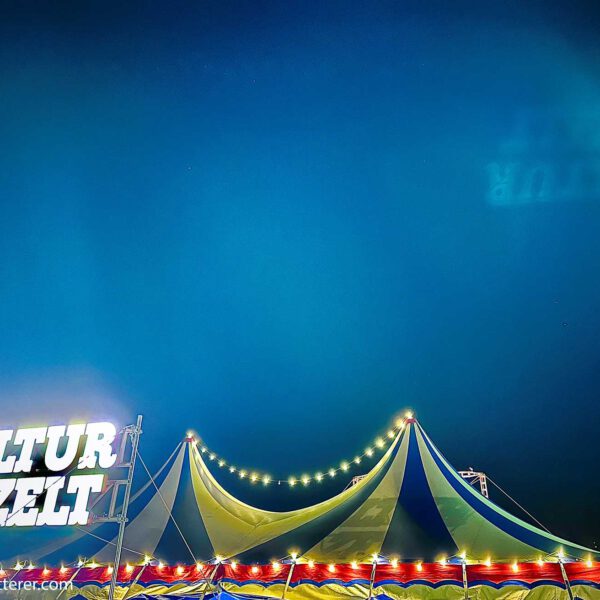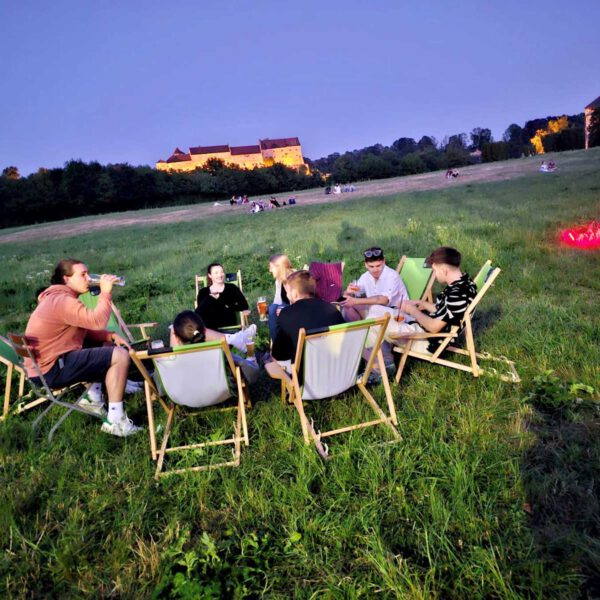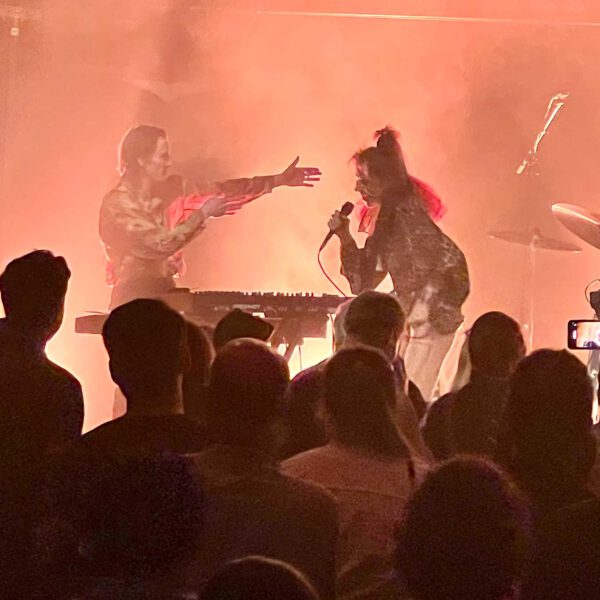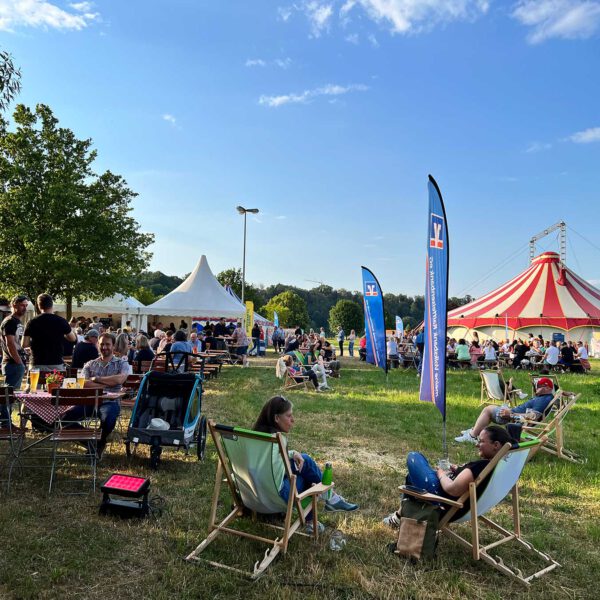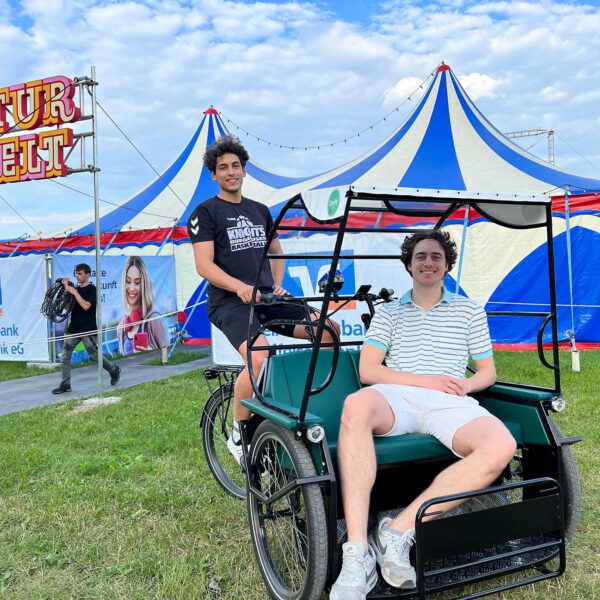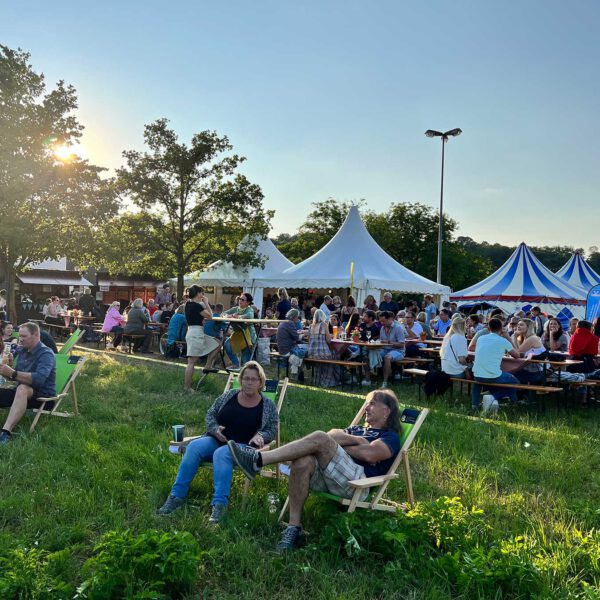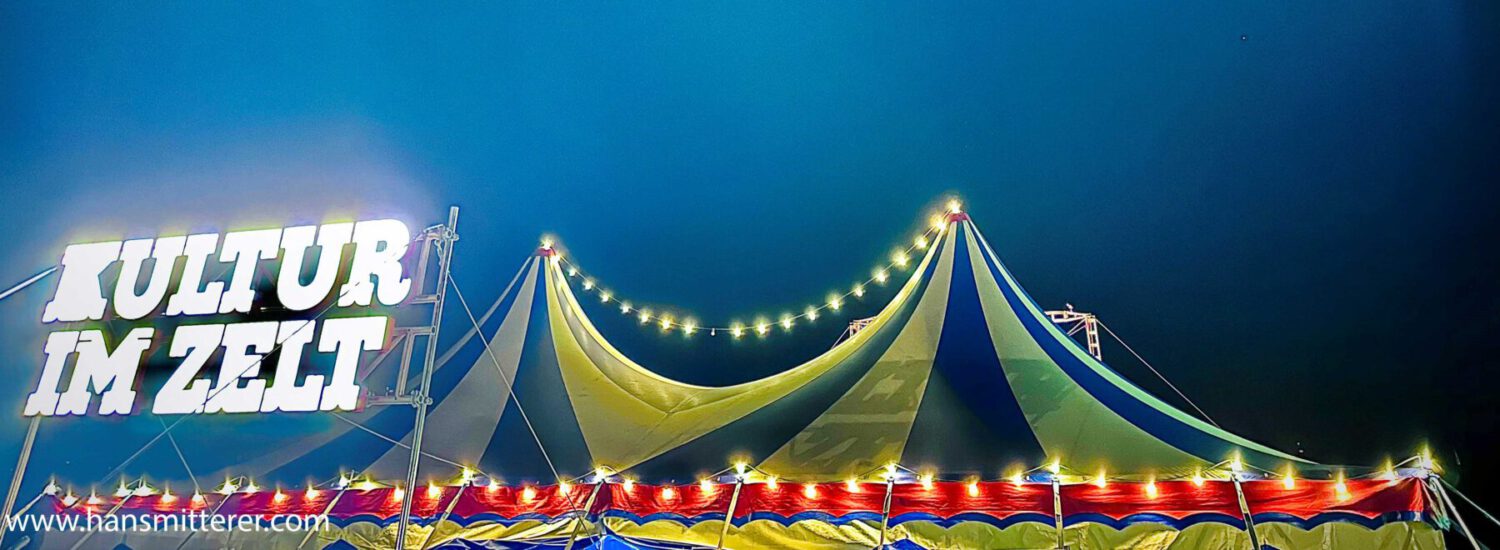
The Festival Culture in the Tent as a starting event for sustainability at Burghausen cultural events
The city of Burghausen has developed guiding principles and objectives for each of the six areas of action in its sustainability concept. In addition, six areas of action were identified.
- climate and energy
- Natural resources and biodiversity
- Science, economy and innovation
- education and civic participation
- Social city and social togetherness
- Mobility
The concept adopted by the city council in 2022 assigns tasks to culture in the area of social city. In order to obtain clues for cultural events, it was decided to measure the CO2 emissions of a festival. An initial concept was developed in collaboration between the cultural office, the climate manager of the city of Burghausen, the environmental office and the Rosenheim University of Applied Sciences.
The popular festival in Burghausen returned with a new face and sustainable concept after a 10-year break. With the headliners The Notwist, Ankathie Koi & Oskar Haag and Bananafishbones, embedded in a natural inner-city landscape with a view over Lake Wöhr, a circus tent with an attached beer garden was available to the festival from June 15th to July 2nd.
Under the motto “More culture, less CO2”, care was taken for the first time to keep the event’s CO2 emissions as low as possible. Therefore, people were encouraged to come to the event location in a climate-friendly way: on the walking paths illuminated with solar lamps or by bike to the pop-up bike parking facility directly on the site. The culture bus made free public travel possible. In addition, we used 100% Burghauser green electricity (from EBG, the Burghauser green electricity provider) and we produced less waste due to the use of reusable tableware. The food offering also made a significant contribution to CO2 reduction: visitors had the choice between vegetarian and vegan wraps and regional fish and meat. With the dedicated support of the caterers, the first values could be collected. The subsequent carbon footprint of the event now helps to identify weak points and to consistently improve or reduce CO2 over the next few years. The goal is not to become completely emission-free (this would only be possible through compensation payments, which we would like to forego for the time being). Our goal is not to emit any additional greenhouse gases with culture in the tent - compared to "no show", which means: if our guests stayed at home or went somewhere else, this would also lead to CO2 emissions. The basis and reason for initial considerations was the CO2 calculator from the Augsburg Modular Festival.
In a first step, the city employees concentrated on the two areas of catering and mobility, where we see the greatest leverage. At the Augsburg Modular Festival, these two areas are responsible for around 80% of greenhouse gas emissions.
The question of what food is on offer and how visitors get to the festival site were therefore the central questions that had to be answered. How high are the CO2 emissions of fish and steak rolls, tomato-mozzarella wraps or a cheese plate? In addition to CO2 emissions, factors such as regionality, seasonality and whether the products are organically grown also play an important role.
With great support from the caterers, the catering was able to offer products from the immediate vicinity of Burghausen (mentioning the farms), vegetarian and vegan dishes and exclusively regional drinks. Information posters with detailed information about the origin of the food and the CO2 emissions of the individual dishes were visible on billboards.
When it came to mobility, people were increasingly encouraged to travel by bike; there was a shuttle bus from the train station to the festival site, as well as a cycle rickshaw that shuttled between the parking lot and the site.
But even during preparation, care was taken to ensure that the print advertising was designed to reduce CO2 emissions using ecological paper printing. Fewer flyers were printed than at previous events and the online presence was enhanced with a dedicated website. The waste separation system was very well received by visitors. However, we still see some room for improvement when it comes to organizing collection/waste collection. Switching to a separation system here (paper, plastic, residual waste) is not a problem, but changing well-established work processes is difficult.
In order to get help in making decisions for the future, the visitors were surveyed: In the questionnaire, the visitors were asked about the type of transport and the distance to their hometown. It was found here that 80% of the guests from Burghausen arrived in a climate-friendly manner, while the guests from abroad - due to the lack of bus and train connections - predominantly arrived in their own cars. A connection with public transport is a well-known problem and can currently only be solved with expensive, own transport concepts, such as a shuttle bus paid for by the city.
In addition, the range of food on offer was queried and visitors had the opportunity to make their own suggestions or suggestions for improvement for more sustainability and climate friendliness. It was noticeable that a large number of visitors responded very positively to the questions and made constructive suggestions:
Energy-saving lighting, solar cells on the premises, saving plastic, increasing prices for sustainable food or expanding public transport. The mixed menu of vegetarian and vegan dishes as well as classic steak rolls was rated positively and would continue to be desired in the future.
A majority of visitors would be willing to pay compensation for ticket prices (up to 5% per ticket), although most respondents would like to support sustainable projects in the area.
The organizers' attempt to examine and question the sustainability of the festival was repeatedly praised. Our visitors are aware of this topic and it is important.
We can therefore move forward with the further development of our sustainability concept with self-confidence and the support of our guests.
The questionnaire was already developed with the support of master's students from the Burghausen campus of the Rosenheim University of Applied Sciences, specializing in business administration. In the coming months, they will now create a “toolbox” with measurable indicators for cultural events and recommendations for action for municipal events and third-party organizers will then be developed.
Cultural events
Alias – improvisational theater
Cabaret Burghausen
In den Gruben 166, 84489 Burghausen
Creative dance
recreation home
Kapuzinergasse 227, 84489 Burghausen
Drive Away Dolls
anchor hall
Stadtplatz 41-42,84489, XNUMX Burghausen
Sound installation “Cut up the border”
Project room town hall
Stadtplatz 116, 84489 Burghausen
LOOK INTO THE FUTURE 6
Raitenhaslach Monastery
Raitenhaslach 11, 84489 Burghausen
Steffen Schleiermacher plays John Cage: Sonatas and Interludes for prepared piano
Raitenhaslach Monastery, Aula maior
Raitenhaslach 11, 84489 Burghausen
“Culture in Burghausen is colorful and diverse. I'm always happy to be surprised by what the clubs, groups and communities have to offer - classic, modern, offbeat, curious, always exciting, fresh and unique.
Good that we have such groups in Burghausen!”
Florian Schneider, Mayor of Burghausen

